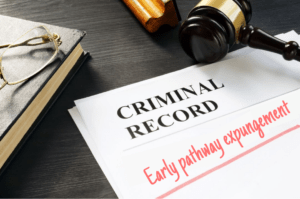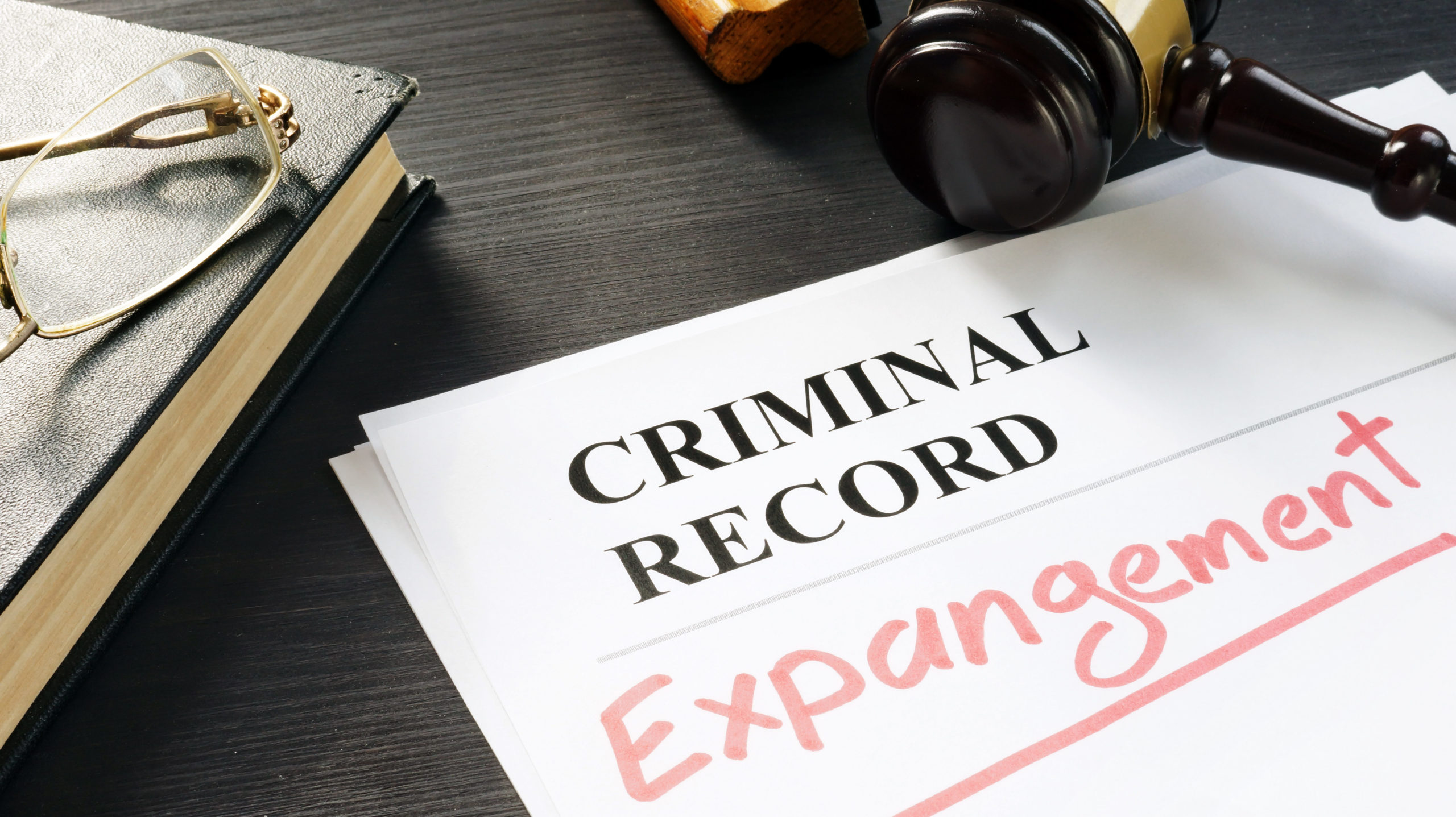
What is the Difference Between a Regular Expungement and an Early Pathway Expungement?
In essence, an expungement of any kind offers the chance for someone to have some or all of their criminal record erased. A person who meets the criteria is considered “presumptively entitled” to a regular expungement. That means most other factors—e.g. personal character, severity of the crime, attempts to better oneself, etc.—do not factor into it.
By contrast, an early pathway expungement allows a person to isolate part or all of their record in less time: five years for a felony, three years for a disorderly person’s offense. However, an early expungement has stricter criteria, not the least of which is that the defendant must prove that the early expungement is in the public interest.
What Are the Qualifications for an Early Expungement?
A person may qualify for an early pathway expungement if:
- At least five years (for a felony) or three years (for a disorderly persons offense) has passed from the date of conviction, payment of fine, satisfactory completion of probation or parole, or release from incarceration, whichever is later.
- He/she has not been convicted of a crime or disorderly person’s offense since the conviction.
- He/she can demonstrate that the expungement is in the public interest.
What Does It Mean to be “in the Public Interest”?
The proof of public interest is one of the most significant aspects of an early pathway expungement. In essence, it is a judgement of one’s character and decisions. To prove that the expungement is in the public interest, one must provide evidence of behavior and accomplishments that are likely to limit the chances of re-offending down the road. This includes things like:
- Job training
- Education (i.e. obtaining or completing a degree)
- Participation in sports
- Community involvement
The judge will also examine existing legal obligations, such as child support or traffic violations, as well as any effort to sever ties with individuals with ongoing criminal behavior. The crime or crimes being expunged will also be examined closely for mitigating or aggravating circumstances.
In addition, individuals should provide any possible evidence that the conviction has impeded efforts to lead a normal, law-abiding life (such limiting employment opportunities or affecting the ability to be more involved in the community, etc.).
How Does the Early Pathway Expungement Process Work?
Unlike a regular expungement, which a person is preemptively entitled to, a prosecutor is likely to object to an early expungement case. If that happens, the person seeking the expungement (known as the petitioner) will need an attorney to help prepare a legal brief outlining all of the reasons the early expungement is justified.
Nearly all early pathway expungement cases result in a court appearance. At court, an attorney will argue the petitioner’s case before a judge. It is possible that the petitioner will be expected to testify as well.
The petitioner will also be required to provide documentation supporting his/her claims to the court. This can include character reference letters, diplomas, proof of charity or volunteer work, and rejection letters from employers, etc. A judge may also request transcripts from plea deals or sentencing hearings.
What Happens if the Expungement is Granted?
If the case is successful, the judge will sign an expungement order. The court must then provide a copy of the signed order to the attorney or another individual who filed the original expungement petition. He/she must then serve a copy of that signed expungement order to every court, law enforcement agency, parole or probation authority, etc. Once those agencies have received and processed the expungement order, the record will no longer be retrievable.
Do I Need a Lawyer to Get an Early Pathway Expungement?
While a person can file a petition for an early expungement without the aid of an attorney, this is not recommended. There are a lot of factors involved in such cases. An attorney with experience filing expungements will know exactly which kinds of evidence will best convince a judge of the public interest. It is also important to have a skilled attorney examine the circumstances of the arrest and sentencing to find factors that can be used to mitigate the severity of the crime, as well as problematic aspects of the person’s post-arrest life or the crime itself that may make the expungement difficult to get.
Having the right strategy with the best possible arguments and every possible piece of documentation can make the difference in getting an early expungement or being denied. This is best done with a talented attorney in one’s corner.
 Case Study on Early Pathway Expungement
Case Study on Early Pathway Expungement
On May 31, 2002, a defendant referred to in court documents as E.C. was arrested on drug charges. As a result of a plea bargain, on December of 2002 she pled guilty to one count of third-degree possession of cocaine with intent to distribute, N.J.S.A. 2C:35-5(a)(1), and was sentenced to three years of probation and payment of $1,205 in fines. For several years E.C. committed probation violations and was unable to pay the fines. However, by February 8, 2010, she had paid off all the fines and was discharged as having completed the probation terms.
On November 9, 2015, E.C. filed a petition for an early pathway expungement of the 2002 arrest and conviction, as well as the charges that had been dismissed as part of the 2002 plea bargain. She also sought to expunge a June 14, 2002 arrest on charges that were later dismissed, and a 2012 arrest that the State admitted was an error.
E.C.’s filed the petition on the following grounds:
- She was 19 years old at the time of her May 2002 arrest.
- As a result of the 2002 conviction, she lost her public housing.
- She was also forced to drop out of college due to the loss of federal student aid.
Her petition included extensive documentation showing a years-long effort to complete a degree in the healthcare field while caring for two children. (By 2015 she graduated with a 4.0 GPA.) Unfortunately, her 2002 conviction hindered her ability to obtain certification and obtain a full-time position in a hospital. Letters of support were included in the petition attesting to E.C.’s good character.
However, the Union County Prosecutor’s Office opposed the application, arguing that E.C. had not “satisfactorily completed” her term of probation, within the meaning of the expungement statute, N.J.S.A. 2C:52-2, because she had been discharged from probation “without improvement.” The trial court agreed and denied the expungement. Based on the trial court’s construction of the statute, E.C. would be permanently unable to apply for and obtain expungement of her criminal record.
Thankfully, on appeals, this decision was overturned citing that being discharged without improvement still constituted completing and satisfying probation. With the fines paid, all conditions of the sentencing were met.
 Frequently Asked Questions
Frequently Asked Questions
- Character reference letters from people or organizations;
- Diplomas or educational certificates;
- Awards from work or the community;
- Documents certifying volunteer work or charitable activities;
- Documents showing how the conviction has impeded personal or professional progress (such as rejection letters from schools, banks, or landlords);
 Who Should I Contact?
Who Should I Contact?
If you or a loved one is seeking an early pathway expungement, contact the attorneys of Rosenblum Law right away. Our skilled criminal defense attorneys have helped numerous people in similar situations. Let us use our experience to defend your constitutional rights and fight to have your criminal record expunged. E-mail or call us today at 888-815-3649.



